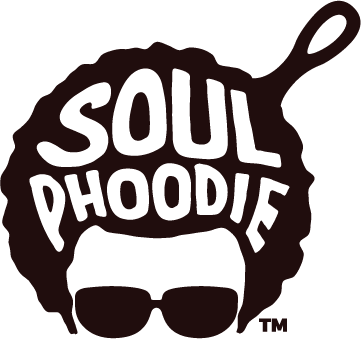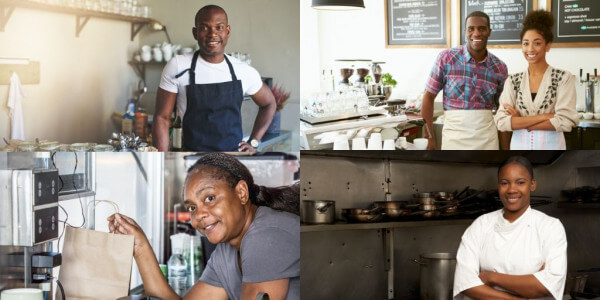by
The COVID-19 pandemic has drastically affected our lives as well as the health of many black-owned businesses, especially restaurants. In a short time, bustling cities have been reduced to barren landscapes, and people have been confined to their homes for the indefinite future. These shelter in place orders are hurting many black-owned restaurants. Some restaurants are seeing a decrease in sales of over 50%, and takeout/delivery services are not enough to cover the necessary expenses. Thousands of owners are undercapitalized and struggling to keep their doors open amid the crisis. The sentiment “we’re all in this together” seems to be widespread; however, when it comes to the black-owned restaurants, that doesn’t seem to be the case.
Black-owned restaurants are an extremely vital fixture in cities nationwide. Food is a snapshot of black culture, heritage, and history. Black traditions are carried on through cooking. Many black-owned restaurants offer a unique culinary experience as the types of foods offered at these restaurants are as multifaceted as Black history.
Black people have played an essential role in American cuisine. For more than 400 years, Black people have been shaping American cuisine and contributing significant creativity and innovation. Barbecue is an American culinary tradition that emerged from enslaved Africans – from jerking in Jamaica to anticuchos in Peru. Cajun food is a mix of cultures with traditional southern and rural French-Canadian flavors coming together for an explosion of taste. Even Jack Daniel’s has Black influence – the slave of Jack Daniel played an integral role in the process as he provided vital information about the whiskey-making process. Our culture lives on through culinary experiences. We are the Funk and Jazz antidotes to the “Sea of Sameness” served on QSR corners, casual dining ghettos, and fast-casual projects that dominate the American landscape.
Like many other small and independent restaurants, black-owned restaurants are being excluded from loan programs designed explicitly to bail out small businesses. The paycheck protection program (PPP) was depleted entirely within a matter of a couple of weeks. Large chains like Potbelly Sandwich Shop have helped suck the fund dry with their multi-million dollar loans. So, what does this mean for Black restaurant owners? Well, this means many owners are not likely to receive the amount of aid needed, if any at all. Even though the hospitality industry has been the most severely impacted, only 9% of loan approvals have gone to this sector. The majority of small businesses were left to fend for themselves. At the same time, well-capitalized restaurants use their A+ locations, seasoned management teams, purchasing power, and technological advantages to benefit from the situation. The sad reality is that as a result, many black-owned restaurants may not make it out on the other side of this pandemic.
Although COVID-19 has dramatically impacted Black-owned restaurants, many owners were struggling long before the virus took hold of the economy. Owning a restaurant is one of the most challenging ways to support yourself in America. The margins are paper-thin – restaurants that return a dime for every dollar in sales are considered successful! Many owners take home very small or no salaries during the early stages of operating. The competition is steep…when entering the restaurant industry, you’ll likely be competing with hundreds of other restaurants for business. Workers are continually coming in and out of establishments, and the turnover rate is exceptionally high. Retraining new employees regularly cost time and money. As the owner, you must wear almost all the hats; this leads to ridiculous hours and over-exhaustion. As the owner, cook, handyman, accountant, server, marketer, etc. you are responsible for almost all aspects of your restaurant, and this is an enormous amount of pressure for one person.
Decades of systemic racial inequality has negatively affected black-owned restaurants for ages. There is a significant wealth gap on top of limited access to traditional loans and investors for startup capital. The lack of financial and intellectual capital available to black people has been a driving force in the struggles of Black restaurant owners. When it comes to obtaining money to start a small business, the three most popular mediums are personal/family savings, business loans from banks or financial institutions, and credit cards. Statistics show that Asian and Hispanic entrepreneurs rely on personal/family savings the most, White entrepreneurs rely on banks or other financial institutions the most, and Black entrepreneurs rely on personal credit cards. The pool of capital is minimal when it comes to Black entrepreneurs. Loans are a huge problem as well because it can be challenging to qualify, and in many cases, even if you do qualify, it is more than likely not enough to fund a startup or expansion adequately. We are also dinged on the underwriting requirements because our businesses are not located in “optimal” locations. Interest rates on loans can be high due to a lack of credit history or poor credit history, so Black entrepreneurs tend to rely on savings, friends, families, and in some cases, a full- or part-time job to support the business and themselves.
What can we do to address the issue? There are three steps we need to take:
- Expand Access to Capital
- One of the best ways to expand access to capital is by creating venture and loan funds to stake high opportunity or successful operators. We can’t rely on traditional venture funds or commercial banks with their biased underwriting practices to provide the needed capital. How do we create our own?
- Small business administration loan training is also necessary. A lack of intellectual capital can have adverse effects, and educating owners on available loans helps mitigate those effects.
- Microgrants/loans for short term needs and marketing initiatives
- Negotiating advantageous equipment and cash advance financing programs could positively impact many restaurants.
- Provide Training and Experienced Mentors – Training and experienced mentors are severely lacking in our restaurant community.
- Create a series of educational modules and tools that educates members on crucial topics such as operations management (Scheduling, inventory, food safety, etc.), finance (Managing P&Ls, menu costing, labor models, etc.) and marketing (Branding, Menu Design and engineering, advertising, social media, etc.) can transform the way these businesses are run.
- Leverage the experience and knowledge of a vast network of seasoned Black restaurant experts trained at mainstream brands in operations, technology, marketing, finance, and HR to serve as mentors/consultants to members.
- Providing low cost or free marketing services such as menu design, social media, collateral materials, etc. is another way to mitigate the knowledge gap.
- Form a Coalition – A coalition that is free to members allows members of the community to come together to highlight and build awareness for owners who are excelling in the restaurant space. It is an opportunity to seize a seat at the table to advocate for the needs of black-owned restaurant owners. Owners will be able to negotiate with national vendors for free or reduced-priced goods and services, further amplifying the voice of the black entrepreneur.
COVID-19 has disrupted the business of all restaurant owners, especially black ones, and this pandemic has shed light on the disparities that have been present for far too long. Change needs to be made for Black-owned restaurants to survive in America. As the erasure of Black-owned restaurants continues in America, so will the erasure of Black culture.


